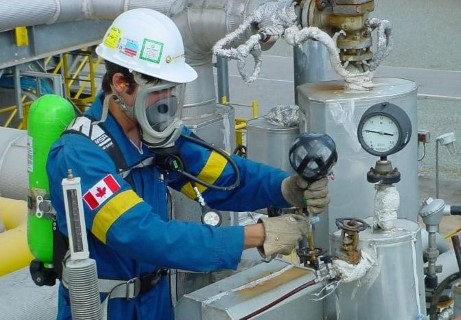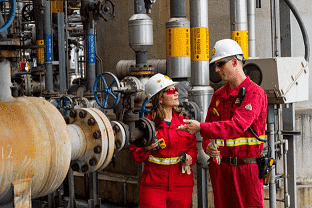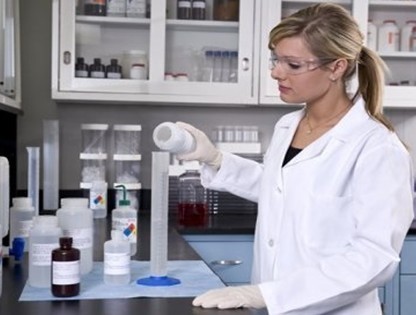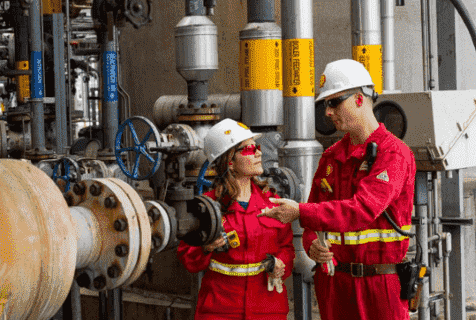COURSE OVERVIEW
PROCESS & CHEMICAL ENGINEERING

OVERVIEW
| COURSE TITLE | : | PE0310 : Gas Sweetening & Sulphur Recovery |
| COURSE DATE | : | Mar 03 - Mar 07 2024 |
| DURATION | : | 5 Days |
| INSTRUCTOR | : | Mr. Mervyn Frampton Days |
| VENUE | : | Istanbul, Turkey |
| COURSE FEE | : | $ 6000 |
| Request For Course Outline | ||
OTHER SCHEDULED DATES
| Date | : | Jan 21 - Jan 25 (5 Days) | Location | : | Dubai, UAE | Classroom Fee (US$) | : | $ 5500 | Course Info |
| Date | : | Feb 18 - Feb 22 (5 Days) | Location | : | Doha, Qatar | Classroom Fee (US$) | : | $ 6000 | Course Info |
| Date | : | Mar 03 - Mar 07 (5 Days) | Location | : | Istanbul, Turkey | Classroom Fee (US$) | : | $ 6000 | Course Info |
| Date | : | May 26 - May 30 (5 Days) | Location | : | Doha, Qatar | Classroom Fee (US$) | : | $ 6000 | Course Info |
| Date | : | Jun 09 - Jun 13 (5 Days) | Location | : | Doha, Qatar | Classroom Fee (US$) | : | $ 6000 | Course Info |
| Date | : | Jun 23 - Jun 27 (5 Days) | Location | : | Al Khobar, KSA | Classroom Fee (US$) | : | $ 5500 | Course Info |
| Date | : | Sep 23 - Sep 27 (5 Days) | Location | : | Abu Dhabi, UAE | Classroom Fee (US$) | : | $ 5500 | Course Info |
| Date | : | Oct 20 - Oct 24 (5 Days) | Location | : | Dubai, UAE | Classroom Fee (US$) | : | $ 5500 | Course Info |
Course Description
This practical and highly-interactive course includes various practical sessions and exercises. Theory learnt will be applied using our state-of-the-art simulators. Hydrogen sulfide, carbon dioxide, mercaptans and other contaminants are often found in natural gas streams. H2S is a highly toxic gas that is corrosive to carbon steels. CO2 is also corrosive to equipment and reduces the Btu value of gas. Gas sweetening processes remove these contaminants so the gas is suitable for transportation and use. This course presents a complete and up-todate overview of the Gas Sweetening, Liquid Hydrocarbon Sweetening and Sulphur Recovery with emphasis on gas plant process operations. The process flow sheets of several Sweetening and Sulphur Recovery Processes will be used to illustrate how the various operations differ. The advantages, limitations, and range of applicability of each process will be discussed so that its selection and integration into the overall plant is fully understood and appreciated.Upon completing this course, you will have a good understanding of Gas Sweetening, Liquid Hydrocarbon Sweetening and Sulphur Recovery. There are many methods that may be employed to remove acidic components (primarily H2S and CO2) from hydrocarbon streams. The available methods may be broadly categorized as those depending on chemical reaction, absorption, or adsorption. Processes employing each of these techniques are described. Many of the processes result in acid gas streams that contain H2S that may be flared, incinerated, injected or fed to a Sulphur Recovery Unit. Various Sulphur Recovery Processes (primarily The Modified Claus Process) are discussed. You will also learn the basic vocabulary unique to the industry. link to course overview PDF
TRAINING METHODOLOGY
This interactive training course includes the following training methodologies as a percentage of the total tuition hours
LecturesWorkshops & Work Presentations
Case Studies & Practical Exercises
Videos, Software & Simulators
In an unlikely event, the course instructor may modify the above training methodology before or during the course for technical reasons.
VIRTUAL TRAINING (IF APPLICABLE)
If this course is delivered online as a Virtual Training, the following limitations will be applicable
| Certificates | : | Only soft copy certificates will be issued to participants through Haward’s Portal. This includes Wallet Card Certificates if applicable |
| Training Materials | : | Only soft copy Training Materials (PDF format) will be issued to participant through the Virtual Training Platform |
| Training Methodology | : | 80% of the program will be theory and 20% will be practical sessions, exercises, case studies, simulators or videos |
| Training Program | : | The training will be for 4 hours per day starting at 09:30 and ending at 13:30 |
| H-STK Smart Training Kit | : | Not Applicable |
| Hands-on Practical Workshops | : | Not Applicable |
| Site Visit | : | Not Applicable |
| Simulators | : | Only software simulators will be used in the virtual courses. Hardware simulators are not applicable and will not be used in Virtual Training |
RELATED COURSES

PE0055 : Process Reactors: Operation, Troubleshooting, Start-Up & Shutdown
- Date : Jun 10 -Jun 13 / 3 Days
- Location : Abu Dhabi, UAE
- Course Details Register

PE0020 : Process Equipment Design, Sizing, Selection, Applications & Troubleshooting
- Date : May 20 -May 23 / 3 Days
- Location : Dubai, UAE
- Course Details Register

PE0625 : Introduction to Polypropylene Technology
- Date : May 20 -May 23 / 3 Days
- Location : Istanbul, Turkey
- Course Details Register

PE0640 : Troubleshooting Process Operations
- Date : May 20 -May 24 / 3 Days
- Location : London, United Kingdom
- Course Details Register
